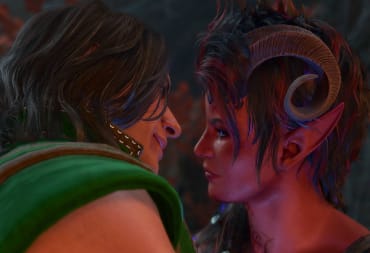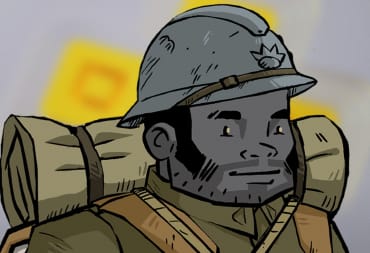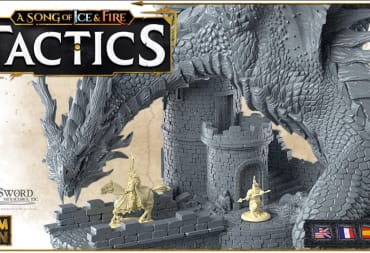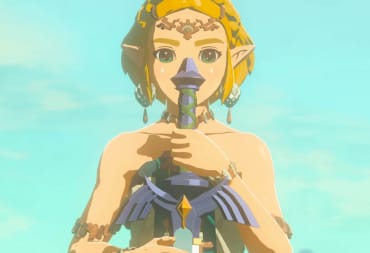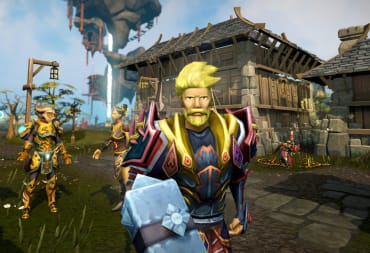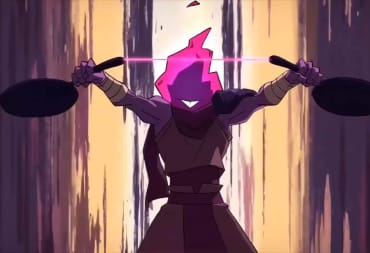With the Judgment franchise carrying the 3D brawler torch while Yakuza continues down the turn-based path, Lost Judgment has major shoes to fill. While still suffering from a case of franchise fatigue, afraid to go the extra mile to define its own niche within the studio's pantheon, it refines its predecessor's concepts and strengths to a point that it can compete with its bigger siblings.

Lost Judgment benefits from Ryu ga Gotoku's approach to writing sequels. The first game was capable of captivation, but it took roughly half its run-time to reach that point of intrigue. Part of this stemmed from the necessity to introduce a new set of characters. The first several chapters felt almost purposeful in their mundanity to give players the chance to acquiesce to the new personalities that would drive RGG's newest intellectual property.
Lost Judgment isn't bogged down by those formalities. Assuming you already have an attachment to characters like Kaito, Yagami, and Saori, the real meat of the experience introduces itself nearly immediately, contributing to a more consistent sense of pacing. Even with the more immediate hook, the script finds ways to unravel one of the studio's most convincing webs with layers of revelations that keep the experience exciting throughout. Noteworthy plot beats occur with a startling level of frequency without feeling unnecessary. Reaching the end of the 20-30 hour adventure puts the studio's growth into perspective.
Yakuza found its foothold in near soap-opera levels of insanity as the series progressed. Many noteworthy intimate moments existed, but it was the big picture plots that most people remember. Judgment attempted a different approach to storytelling, grounding its plot within a more believable conceit surrounding a medical center's corruption motivated by the search for a cure for dementia.
Yakuza reveled in suspension disbelief with Judgment acting as a foil. Lost Judgment is most remarkable in its commitment to go further with this contrast. It pulls no punches, going straight for the flawed state of Japan's legal system and how people's egos fuel equal amounts of justice and injustice. It makes no concessions in its messaging concerning criminals running free while innocents are jailed for superfluous reasons. This played a significant role in the first game with Yagami leaving the legal trade because of a wrongful conviction that leads to an innocent woman's death, but its main story was more centered around issues with the healthcare industry. The country's 99% conviction rate wasn't explored extensively in the first game. Rather, it acted as window-dressing that allowed the events to transpire.

By contrast, this sequel expressly concerns itself with this statistic. Lost Judgment's subject matter, which includes depictions of sexual assault, bullying, and suicide exists to perpetuate the reality of an imperfect system that's so easily exploited. The main cast ere on the side of justice, but even they recognize how the justice they abide by provides frustrating constraints. Ryu ga Gotoku's story may strike uncomfortable chords with some players considering the direction certain plot points take, but it goes in meaningful directions.
Though a clear delineation between right and wrong exists, the various characters' motivations are more nuanced than past RGG titles. There are even attempts to sympathize with some. Conflicting viewpoints drive conflict, but the antagonists, a few exceptions aside, aren't caricaturized. Its narrative places a shocking emphasis on the reasons people act reprehensibly as a means of understanding them and preventing others from falling down that path. It explores this separation between maturity, impulsive feelings, moral identity, and intent to harm.
It's a delicate line--one which may make some uncomfortable, but that's what the story is getting at. It dives into this subject matter to make people understand that sometimes it's okay to feel conflicted about certain topics, the difference stemming from how one chooses to associate with and act upon those feelings. Justice can't be pursued for everybody--an unfortunate reality Lost Judgment presents without obfuscation.
It's RGG's most mature story to date, discarding the typically charming but absurd escalation of plot or straightforward familial bonds in favor of delivering more potent messages about loneliness, abuse, and personal notions of what constitutes as justice. This striking narrative wouldn't hit as hard were it not for Ryu ga Gotoku's masterful balancing of its limited resources and stringent release schedules, with performances and cinematic direction that eclipse most AAA games on the market. It's remarkable that they continue to pull this off year after year.

Judgment's inconsequential friendship events are replaced by a much more fleshed-out series of supplemental content to the returning side cases--school stories. Due to events that transpire, Yagami finds himself capable of acting as an outside advisor to different clubs around Ijincho's Seiryo High School. What begins as an investigation into a mysterious individual known only as The Professor turns into a springboard that effectively utilizes the franchise's grounded approach to world-building.
Through this expansive series of side stories, Yagami can partake in various activities ranging from boxing to skating to participating in robotics tournaments. Not every activity sticks on a mechanical level. The girls' bar, which sees the return of Yakuza Kiwami 2's "form a coherent sentence" minigame, and skating are among the most underdeveloped. The skate courses are so on-rails they might as well be QTE's. Skateboard races fair better, but the handling and physics are too imprecise. The more elaborate racecourses, especially, highlight the constrained maneuverability. Similarly, the girls' bar conversations quickly fall into a lull. While forming friendships with the four girls, players will find themselves repeatedly answering the same questions. Whether responding to a statement or question for the first or fourth time, sentence fragments are always in the same location, removing the anxiety of its time-sensitive nature.
Fortunately, most school stories feature surprisingly robust distractions. Even among the weakest of the bunch, each school story activity is framed within a miniature story that eventually connects back to the overarching plot concerning The Professor's identity and whereabouts. It's here where RGG flexes its side story muscles, telling engaging stories that don't need to rely on zany situations to work. Players spend more time getting to know the characters within each subcommunity whether it's the dance club members or mystery research club.

This added focus on characters afforded by their runtime over placing stakes on meaningful events makes them stick in a way the side cases don't. Future entries should continue experimenting with this angle, fusing more robust activities with meaningful stories and characters to bridge them together. The integration between story progression and gameplay feels tighter than similar past efforts in the Yakuza series such as the stories connected to business management and the like.
As mentioned, side cases are nothing to write home about yet again, though one gets the sense they could one day become something special. With a handful of exceptions, they lack the humor, inventiveness, and heart that made Yakuza's side stories legendary. However, as self-contained miniature stories, they are more serviceable distractions than the last game. Even if you won't open up the group chat to tell the squad about some random side case, they fuel an unexpected level of engagement.
This is because of the greater degree of agency. Lost Judgment strengthens Yagami's detective arsenal with a noise amplifier, signal detector, and dog. The side cases work better here because they lean into the IP's detective elements more gracefully. Unlike the last entry, which automated every use of a gadget or investigation with extreme rail-roading, Lost Judgment's side cases loosen the leash quite a bit. Side cases are more involved investigations than anything presented in its predecessor. Players even have to put in more legwork to discover them, utilizing the Chatter app to determine points of interest based on conversations related to keywords.

Combat is as accomplished as expected this late in the Dragon Engine's lifecycle with the new Snake style making a notable impression. It's not the flashiest--the Crane style still holds that title. However, it's the most satisfying due to its fear mechanic and counter-reliant nature. Certain moves have a chance to inflict enemies with fear, prompting the use of EX actions that involve Yagami intentionally missing strikes, causing them to pass out. It makes Yagami feel more like a predator than the Tiger style, instilling a powerful sense of ownership over the battlefield.
It's exciting even if it is unbalanced, making the Snake style my preferred method for beatdowns 99% of the time. I found myself switching styles far less often than the original game due to this imbalance. Whereas the Tiger and Crane styles had their legitimate use cases depending on the need for crowd control or singular engagements, Snake's utility makes it viable in every scenario even if tutorials class it as a crowd control tool.
This less considered approach is quickly forgotten amidst the countless hype moments. The grounded nature that makes the story work is leveraged with equal success throughout its encounters. There's a level of panache on display from its dynamic fight intros to the way engagements are framed within the context of the story. The confidence is infectious. If only that confidence extended further. Lost Judgment makes many notable additions to the roster of distractions such as the return of drone races, a top-down shoot 'em up, Sega Master System games, and a tweaked Paradise VR with new board activities and an overhauled focus on competing against an AI. There's even another light gun shooter in the from of Hama of the Dead, a successor to Kamuro of the Dead. Combined with the school stories, players will find tons of meaningful content that makes hours feel like minutes.
With that said, the nature of its recycled content, which is what allows these consistent releases, is beginning to grow draining. How often are players expected to derive excitement from the mechanically unaltered UFO Catcher with the expected Monkey Ball and Robo plushies? Also, for the love of all that is holy, let Space Harrier die!
Lost Judgment Review - Final Thoughts
Lost Judgment is a beautifully flawed construction. Despite the more involved gameplay within them, side cases still haven't quite found their footing as successfully as the newly introduced school stories. The recycling of content is also only able to carry this team so far before more reinvention is needed in that respect. In spite of everything, Lost Judgment hones in on its strengths to such a degree that its glaring setbacks are easy to dismiss. In focusing on meaningful refinement, Lost Judgment no longer feels like a diet Yakuza experience. The detective IP is now capable of standing on its own two feet thanks to the engine's most exciting real-time combat, engaging school stories, and the most shocking RGG narrative to date.
1-Minute Video Review of Lost Judgment
Review Summary
Pros
- School Stories Steal the Show
- Ryu ga Gotoku's Most Daring Story to Date
- Detective Elements Require More Agency (in Side Content Only)
Cons
- The Recycled Content is Past Old by This Point
- Side Cases Still Aren't That Memorable
Have a tip, or want to point out something we missed? Leave a Comment or e-mail us at tips@techraptor.net


